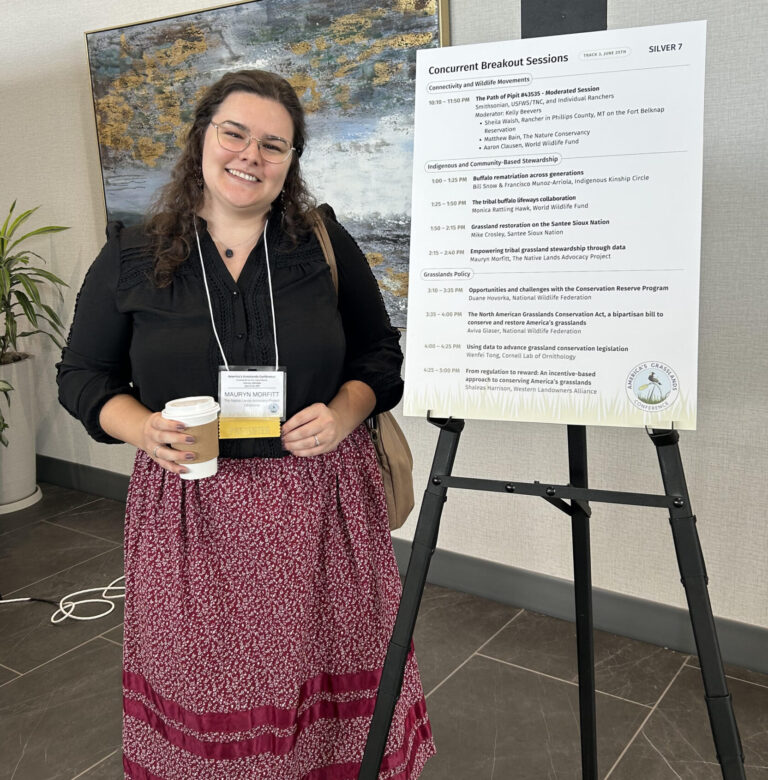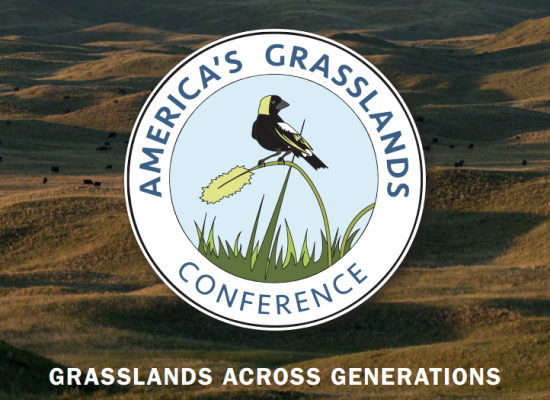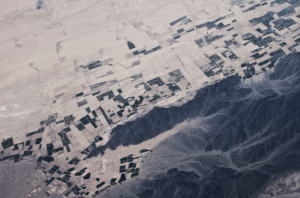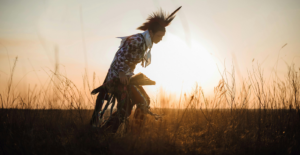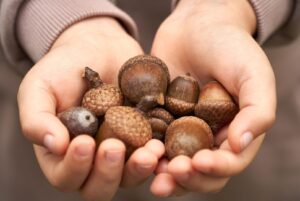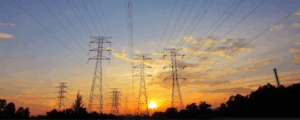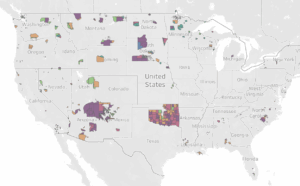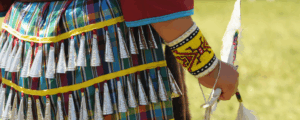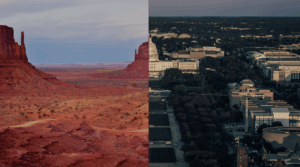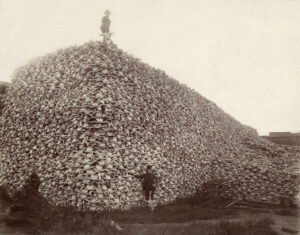The Native Lands Advocacy Project (NLAP) was invited to present at the 2025 America’s Grasslands Conference, June 24-26 in Kearney, Nebraska. The conference was the 7th biennial convening on the conservation of America’s grasslands and was hosted by the National Wildlife Federation, the Nebraska Grazing Lands Coalition, and the University of Nebraska-Lincoln. This year’s conference theme was “Grasslands Across Generations” and it focused on how grasslands and their conservation efforts have changed over time.
Our writer & researcher, Mauryn Morfitt, represented NLAP and was honored to present alongside other Native speakers on the importance of Indigenous and community-based stewardship. Our presentation–Empowering Tribal Grassland Stewardship Through Data–centered around providing context for NLAP’s mission, which is to promote tribal sovereignty through data access, and demonstrating how tribes can use our data tools to steward their lands and protect their communities. We wanted fellow attendees to leave the breakout session with a clearer understanding of what tribal sovereignty is, how it intersects with data governance, and how the data tools and resources on the Native Land Information System (NLIS) are designed to bolster tribal land stewardship.
Since the conference was focused on America’s grasslands, we highlighted some of our resources that would be useful for grassland conservation efforts. Our Data Tools for Native Ranchers storymap was a good place to start, as it is a hub of enriched data tools that are specifically relevant to Native ranchers. From there we demonstrated the National Land Cover Database: Tribal Lands Viewer, which we consider a Keystone Data Tool because it is a foundational resource that has helped shape many of our other data tools (view our webinar on the NLCD here!). We also highlighted our Grasslands: The Lands and the People That Call Them Home storymap.
The institution of Western science has historically dismissed Native voices and expertise in favor of centering its own methodologies and practices. This dismissal has created a deep rift between the Western scientific community and caretakers of traditional ecological knowledge, but today there is a growing recognition of the important role that Indigenous peoples and knowledge systems have in our ecosystems.
We are grateful for the unique opportunity this conference gave to Native advocates to share their perspectives on land stewardship and have their voices heard, and our team at NLAP is thankful for the chance to form new connections and share our work.
You can also take a look at the work of our fellow Indigenous presenters:
- Monica Rattling-Hawk (Oglala Lakota) of the Indigenous Kinship Circle and the World Wildlife Fund
- Bill Snow (Stoney Nakota Nation & Wesley First Nation) of the Indigenous Kinship Circle
- Francisco Munoz-Arriola (Charo) of the Indigenous Kinship Circle
- Mike Crosley (Santee Sioux Nation) of the Santee Sioux Nation Land Management/Transit Program

